
At about 5:00pm on January 12, 2010, a colleague of mine called to tell me to turn on CNN; Haiti just had an earthquake. She did not know the scope of magnitude of the event as CNN was just getting word. This was my worst fear coming true. For years I had been haunted by a 2002 report by the Haitian Mining Bureau outlining the inevitability of a serious earthquake hitting the country see:
http://www.bme.gouv.ht/alea%20sismique/Alea_sismique%20HAITI.pdf . I had been seized by this report and took every opportunity during my radio interviews to talk about the critical need for a building code, an emergency preparedness plan and civic education program for dealing with natural disasters. I immediately began trying to reach people in Haiti. I called at least 11 people – party and civil society leaders, ministers, journalists – before I reached anyone. The first person I got on the phone was one of the directors of Haiti’s emergency management agency. I knew this man to be professional, competent and well spoken, but at that moment he was dumb struck. He was standing in the middle of the street staring at his house, which was turned half to rubble, and the other houses in his neighborhood that had pancaked and crumbled. He was in shock. If he was in shock, I immediately knew this was serious, and that Haiti had just faced one of the most catastrophic natural disasters in recent history.

The loss was staggering: almost 300,000 people died, 400,000 were injured among them 30,000 required amputations, 500,000 homes were destroyed, 6,000 schools, almost all the government buildings suffered damage or total devastation, 96% of the State University buildings collapsed, along with the medical and nursing schools, and many of the hospitals. The country, already the poorest in the Western Hemisphere, suffered an estimated $40 billion in damage.
Within hours, everyone knew that the country was facing its most serious challenge in decades – and that Haiti was ill prepared to meet the challenge. The Haitian government was nowhere to be seen. They had no plan for this eventuality so they were completely paralyzed. On a human level, we all realized that the government leaders were people too and they had just witnessed devastation and death. But on another level, it was near impossible to fathom that there was no plan or process to kick in and manage the chaos. I remember my heart sinking seeing CNN talk to President Preval who appeared to be just wandering around the airport seeing if he could “help out”. He was not leading; he had not gathered his cabinet; he was not there with the emergency management administration. All of Haiti’s failings were on morbid display.
People tuning into CNN were shocked at the level of destruction and the climbing death toll. But for seasoned Haiti watchers, there was no shock -- there was outrage, anger and frustration as we realized that the incompetence, greed and corruption of several generations of Haitian leaders had resulted in the needless death of hundreds of thousands of people. The Haitian people had paid the ultimate price for their government’s corruption on January 12. One year later, they continue to pay.
The chaos and ineffectiveness of the Haitian government’s response to the emergency has carried over to the recovery and reconstruction process. Funding immediately poured in, but progress has yet to be made. The international community responded to the disaster with unprecedented heart and generosity. Half of the American households made donations resulting in $1.4 billion in private aid from the US alone. The US Government immediately took charge of the emergency in the absence of any Haitian leadership. The 82nd Airborne immediately rebuilt the port so supplies could get in. They made the airport function, kept the peace, distributed food and medical supplies, and helped find survivors. Local rescue teams, including my friends at the Fairfax County Fire Department in Virginia, flew down to Haiti to help pull survivors out of the rubble. They were on the scene with a generosity of spirit that moves me to this day. The US Government provided emergency funding and the international community made commitments totaling almost $9.9 billion to recovery and rebuilding.
The Haitian Diaspora in the US and other countries got together and responded quickly to the needs of their countrymen remitting much needed money, supplies and services. The Greater Washington Haiti Relief Committee (GWHRC) and other organizations sent medical volunteers, emergency preparedness experts, and medicine and provided other support to the victims. Then Washington, DC Mayor Adrian Fenty was immediately responsive to both the Haitian community and the Haitian Embassy in Washington donating resources to establish an emergency response center within the Embassy. I was proud to play a role in organizing the GWHRC and working with hospitals and doctor’s associations to send medical volunteers to Port-au-Prince. However, I was frustrated that I could not put my own two feet on the ground in my own country to help out. My outspoken criticism of the Haitian government has landed me on their hit list, and I face constant threats on my life.
The US press also played a major role by creating a bridge of communications and information between the two million Haitian Diaspora in the US and their friends and family Haiti. They put up websites to help find loved ones and did what they could to help people reconnect. The stories were heart breaking.
Yet $10 billion and a year later, rubble has not been cleared streets, rebuilding has yet to begin, and the UN estimates that 1.7 million Haitians continue to live in 1,350 makeshift tent cities throughout the country.
The real number of people living the streets is probably closer to two million because the UN does not count camps that have less than 500 people.
To date, there is no plan to help these people get into permanent housing, and it seems there is no real plan for reconstruction. And the situation seems to be deteriorating further and further. Haiti has faced a massive outbreak of cholera resulting in 6,500 dead and 120,000 infected. Enormous resources were diverted to treat this unforeseen outbreak and frustration in-country is mounting against the UN mission, MINUSTAH, for its role in introducing cholera into the country which had not seen the disease for more than 150 years, see:
http://solutionshaiti.blogspot.com/2010/11/un-fires-on-haitians-protesting-against.html
And then, on November 28, Haitians turned out to register their frustration with the government by voting in the presidential and legislative elections. Everyone knew President Preval had already rigged and manipulated the process, so it was no surprise that chaos, irregularities and blatant manipulation of results marred these elections. But they still turned out to demonstrate their commitment to democracy. Almost two months after the election, no results have been announced, and there is still no viable solution to the mess, see:
http://solutionshaiti.blogspot.com/2010/12/haitis-elections-2010-recounting-fraud.html So what have we learned so far? How do we turn this situation around?
First, the Haitian leadership has been exposed as being fundamentally corrupt and inept. We all knew this and have decried Preval’s agenda ever since he took office, but now corruption has cost hundreds of thousands of people their lives. Like his infamous predecessor Jean Bertrand Aristide,
President Preval has maintained a stranglehold on power and the meager resources of the country. He has ensured that he and his colleagues in the Groupe de Bourdon business cartel have kept almost complete control of the Haitian economy through monopolies, denying access to credit and making it near impossible to launch a new business in Haiti. Control of the economy is maintained through a combination of political tactics and violence, see Preval operatives killing opponents:
http://www.youtube.com/v/kASfVSb9ozU?fs=1&hl=en_US Maintaining power and control has been the sole focus of Preval and his cronies at the expense of everything else. Education, healthcare, economic development, job creation, and emergency preparedness have all taken a backseat to his personal quest for money and power.
With Preval exposed and frustration with politics as usual coming to a head, there is now a real opportunity to turn this around and break the cycle of corruption in Haiti. Turning this situation around requires a fair solution to the electoral crisis. The Haitian people voted out Preval’s INITE party, but through a comprehensive plan to execute an electoral coup, Preval ensured his Party and his candidates retained power. The only viable solution now is to annul the November 28 elections, invoke Article 149 of the Haitian constitution and appoint a provision president from the Supreme Court, as stipulated in the Constitution, to preside over new, free and fair elections in November 2011. A non-partisan CEP must be put in place to administer elections impartially. Further, no member of the provisional government should be allowed to run for office. This approach worked for Haiti in 2006, people trust the process, and there is broad consensus among political parties and civil society for this approach. The OAS is proposes to address this crisis with a run off between the top two presidential candidates, Martelly and Manigat. This is viable only if they annul the legislative elections and reschedule them. Without the annulment of the rigged legislative elections, there will likely be a popular uprising and violence. Haiti cannot afford this.
Second, Haiti lacks institutional capacity and until institutional development factors into aid programs, the country will remain mired in poverty. Of course, building capacity has factored nowhere into Preval’s agenda. In order to maintain his tight grip on control, he micromanages almost all aspects of government. But what has also become apparent is that international aid has not addressed institutional development either. More and more people are raising questions about the correlation between the lack of development in Haiti and the lack of focus on institutional development. Aid organizations, largely with the best intentions, have administered a patchwork of programs tied to no real overall development strategy and have operated in many cases by bypassing the government. Of course, the Haitian government is infected with corruption throughout, but there are many good people to work with and ways to ensure that funding is not squandered. Likely because the process of working with the Haitian government is frustrating and time consuming, aid organizations have chosen to operate on their own. On some level this is understandable, but it is becoming apparent that this oversight has likely been one of the key factors holding Haiti back. After the earthquake, the international community was shocked at the situation in Haiti. Questions were raised about where the $11 billion in aid money that poured into the country of the past 20 years went. There were few if any signs of improvement for all that money. Now it seems we are getting some insight into why the lack of progress.
Underscoring this second point are the dynamics surrounding the reconstruction process. For every $10 in aid money, $.03 goes to Haitian institutions and $9.97 goes to international organizations and NGOs. International NGOs have secured their funding for their operating budgets and key projects and international firms have secured contracts for rebuilding projects, but Haitians have been left of the process. They are not only missing out on the chance to participate in the rebuilding of the country, but also on the opportunity to gain experience and expertise by partaking in the process.
The official international government aid process has faired no better. The international community led by UN Special Envoy to Haiti and former US President, Bill Clinton, worked with the Haitian Government to set up a commission to manage the reconstruction process. They established the Haiti Interim Reconstruction Commission (IHRC), co-led by Mr. Clinton and Haitian Prime Minister Bellerive. The HIRC has developed a plan – without consulting Haitian ministers – and put together a process to award projects to firms. Projects seem to be awarded mainly on the basis of political relationships with key members of the IHRC mainly foreign. Recently, the Haitian members of the IHRC delivered a speech at a meeting of the Commission expressing frustration about how they have been left out of the process. They contended that they have been an afterthought and treated merely as a rubberstamp for decisions already made by the leadership. Further, they complained that all contracts have gone to foreign firms without a bidding process or clearly defined criteria for selection. They charged that the process is simply not serving Haitians or Haiti’s long-term development. See:
http://solutionshaiti.blogspot.com/2011/01/haiti-interim-reconstruction-commission.html

Turning this around requires a fundamental restructuring of international aid. The Haitian government is too weak to take control of the aid process and has not demonstrated the political will to set national priorities and ensure that aid programs address those priorities. In absence of a functioning Haitian government, it is up to the aid community to reevaluate how they are providing aid and the impact they are having. To be effective, they will need to prioritize building capacity in country, work with people in the Haitian government to set national priorities, coordinate among the aid community to ensure there is no duplication of efforts, and ensure that they are actually building up the Haitian people and institutions through their aid. Otherwise, there are merely acting as “poverty pimps”, exploiting the poverty and dire circumstances to drum up funds in the name of charity, but then not actually providing Haitians with the tools to lift themselves out of poverty. Haitians are just kept weak and poor and have no way to break free from their pimps. This is a harsh analogy to be sure and most aid organizations undoubtedly have good intentions, but let’s be frank: successfully training people to take care of themselves puts them out of a job.

Finally, I am well aware that it is easy to find problems with this process and that the coverage of Haiti is full of analyzing the things going wrong in country. But there are things that have gone right, and we should give credit where it is due. Some organizations have approached Haiti in constructive and beneficial ways. Oxfam, for example, went to local farmers to buy produce for their food programs. This was a boon to Haitian farmers. US AID food programs did a good job of covering the camps and providing regular access to meals. The Iron Market has been rebuilt allowing the small merchants to go and sell their products.
But I am most proud of the Haitian people who have shown resilience and strength in the face of such devastating circumstances. I am proud of the creativity they have shown. There is a small watchdog group
www.haitiaidwatchdog.org that started up in order to track the spending of aid money. They have no resources and no training, but have shown real dedication to the issue. They work tirelessly in the face of great odds. The journalists who work for almost no money, but have the country wired display great professionalism even exposing their colleagues when they see corruption. They get the story right and they expose it -- even in the face of threats from Groupe de Bourdon and government operatives. They are real heroes and get little recognition for the work that they do. They deserve more funding and training because they have the confidence of the Haitian people.
While there are bright spots, we have a long way to go. Recovery and rebuilding under the current circumstances will be slow. But there are still ways to turn the process around and rebuild Haiti into the vibrant country that we all know it can be. The following are a few solutions that I put forward for 2011:
1. Establish a Housing Fund: Until Haitians can rebuild their homes, there will be little opportunity for economic development. Most Haitians will use their homes as collateral to secure credit and loans to start new businesses or make major purchases. Without their homes, they of course have no collateral. I propose putting together a Haitian Housing Authority. The Authority would be a public-private partnership raise a fund and grant low-interest mortgages for families to rebuild homes. The funds could come from the existing donations. Many organizations have yet to spend their funding, and this would be the most effective use of the funding. For example, the Red Cross has only spent $200 million of the $480 million they raised.
There is an earthquake recovery expert in San Francisco, Keith Miyamoto, who estimates that it would cost about $200 million to get one million people into new houses within six months. He has already provided technical training to local Haitian engineers and masons on how to identify and fix homes that are repairable and how to construct new homes that will withstand a 9.0 magnitude earthquake. The training is there and ready to go, we just need the vehicle and funding to do this. That would best be accomplished through a public private partnership.
2. Establish a Small Business Commission: We need to jumpstart Haiti’s small business sector, which makes up the majority of the economy. This should be led by a Small Business Commission, which should again operate as a public-private partnership to accomplish three main functions. First, the business regulations need to be revamped to make it easier to set up a legitimate business. Haiti was ranked among the most difficult countries to set up a new business. Second, this commission should assist small businesses with business plans, mentoring and providing expertise and access to all regulations and required forms. In this function, it could be modeled along the lines of the myriad of state government business one-stop centers throughout the US. And most importantly, this commission should provide micro-credit to entrepreneurs to get their businesses up and running. Currently, Haitians have to pay 40% interest on their loans, which puts them beyond the reach of most small business people.
3. Reorganize the IHRC: The current structure of the Haitian Interim Reconstruction Commission is just not working for all the reasons listed previously. The Haitian members of the Commission have contended that projects are being awarded without bids and without criteria. The overall development plan is loose and is not tied to Haiti’s long-term development. And, most importantly, it is not building capacity. In order to better serve Haitian interests, the HIRC should be reorganized to include Haitian Ministers, the Haitian private sector, and the Diaspora, who are all currently excluded from the process. The international community needs to continue to play an important role providing expertise and exercising authority to ensure funding goes to key priorities. But the current co-leadership structure is not serving Haiti’s interests.
4. Integrate the Haitian Diaspora: More than 83% of competent Haitians currently reside overseas. Haitian institutions are in desperate need of this capacity; therefore, the Haitian government should create a framework to integrate Haitian Diaspora into the state institutions and private sector. There should be a concerted effort to encourage Haitians to return to Haiti to start businesses, serve in government and support civil society institutions.
5.
Contain Cholera: At this point, all Haitians must be vaccinated against cholera. The cost is about $4 million, but will undoubtedly save lives and be cheaper than treating a further spread of the epidemic. The Haitian government – with international partners – should establish a non-UN, independent expert commission to scientifically and legally establish the origin of the cholera epidemic. It seems that the UN bears responsibility for introducing this particular strain of cholera. If the UN is found to be the source of the outbreak, they should establish a fund to help contain and treat cholera in Haiti over the next ten years. See:
http://solutionshaiti.blogspot.com/2010/11/cholera-in-haiti-is-united-nations.html
6. Free and Fair Elections: None of these recommendations could be implemented effectively without competent leadership that has the confidence of the Haitian people. In short, we need real free and fair elections that produce leaders that have the support of the people. Without this, we will only be distracted by political instability over the next year – and we will lose another year of progress. The November 28 elections must be annulled. As of February 7, 2011, when Preval’s term legally expires, a provision president from the Haitian Supreme Court should be put in place by invoking Article 149 of the Constitution. The provisional government should then be tasked with organizing new elections for November 2011. None of the members of the provisional government should be allowed to stand for election. There is agreement on this path forward among civil society and the political party leaders. Further, the process was successfully used in the 2006 elections and has the confidence of the Haitian public. This is the only viable way to avert political crisis at this point.
If we could accomplish these six things in 2011, Haiti would be on the right path for marked short and long-term progress. This is not the first time I have put forward these ideas, and I am not the only one advocating them. There are sound and compelling reasons for each concept. Yet it seems that no one in the international community or the Haitian government has really picked up any thread of these issues, which are so fundamental to addressing the current situation on the ground. Given the failure of this first year, we should all be advocating for a re-examination of the current strategies and a fundamental shift in the way aid and development is being conducted in country.











































































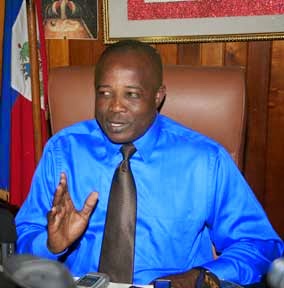

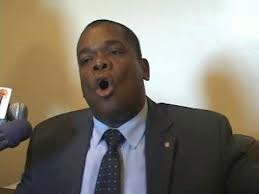
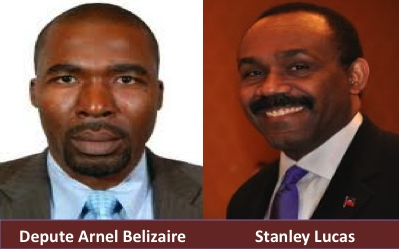







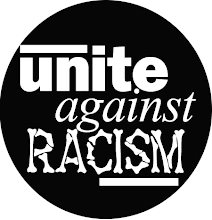





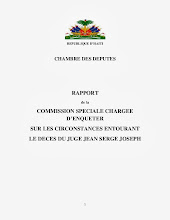

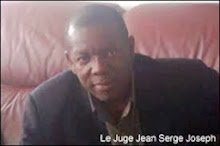
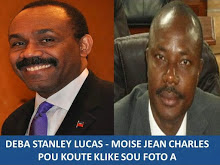





































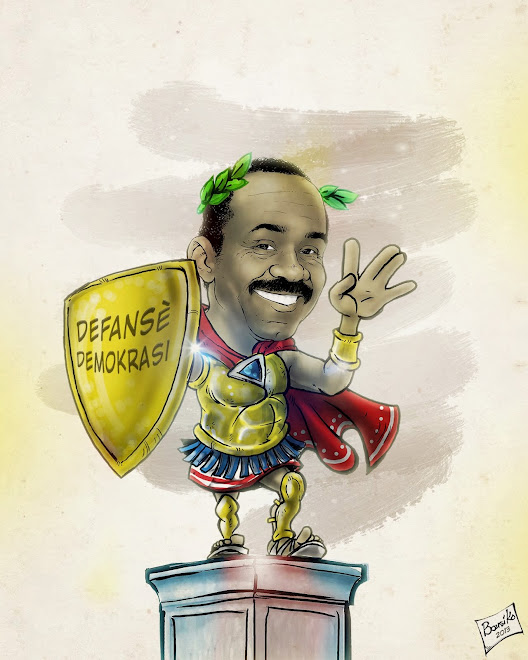



















-3.jpg)


.jpg)





.jpg)











.jpg)
.jpg)
.jpg)
.jpg)
.jpg)
.jpg)





































































